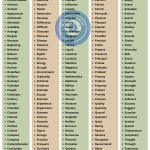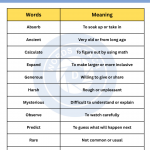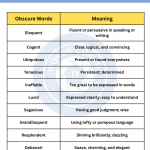Things to Know About the IELTS Writing Section
The International English Language Testing System (IELTS) is the most popular English proficiency test for higher education and global migration. You can take IELTS Academic or IELTS General Training depending on your purpose. See the official website to decide which IELTS test is right for you.
IELTS tests your ability in 4 different sections-Reading, Writing, Listening, and Speaking. Let’s get an understanding of the IELTS writing part.
How much time will be given for the writing exam?
There will be two writing tasks for you to write in both academic and general training exams. To complete both tasks, you will have 1 hour. Writing task 2 carries more marks than Writing task 1.
What is the format of the writing section?
The writing tasks are different for the Academic and General training version of the test.
| Task | Timing | What to write about? | |
| Academic Writing | 1 | 20 minutes | Describe visual information |
| 2 | 40 minutes | Write an essay | |
| General Training | 1 | 20 minutes | Writing a letter |
| 2 | 40 minutes | Write an essay | |
What will be the writing task 1?
For the Academic Test:
- In this part, you have to write a descriptive report of 150 words (approx) about the visual information given to you. It is recommended that this task should be completed in 20 minutes.
- Visual information can be in the form of diagrams, charts, tables, maps, etc.
For the General Test:
- You have to write a descriptive letter of 150 words (approx). In Task 1, candidates are required to react to a given issue with a letter mentioning data or clarifying a circumstance. It is highly recommended that you do not spend more than 20 minutes on this task.
- A letter can be formal, semi-formal, and informal.
- Informal (if writing to family or friends)
- Semi-formal (if writing to a work colleague you know well)
- Formal (if writing to a business or a local newspaper)
- Task 1 is worth 33% of your writing score.
What will be the writing task 2?
For the Academic and the General Test:
- In this part, candidates need to write a discursive essay of 250 words (approx). You will be given an opinion, problem, or issue that you need to respond to. You may be asked to provide a solution, evaluate a problem, compare and contrast different ideas.
- Task 2 is worth 66% of your writing score.
- General training writing task 2 is similar to Academic writing task 2. It can be written in the same way and scoring is also the same. The only difference is General training essays are often easier and topics are simpler than the Academic one.
How will your writing paper be assessed?
- Task Achievement: For the writing task 1, you need to write about 150 words. And for the writing task 2, write about 250 words.
- Lexical Resource: Did you use a wide range of vocabulary in your tasks? It will be assessed if you have used different and variety of words.
- Coherence and Cohesion: Is your writing easy to comprehend? Are your ideas well organized and connected? The content of the writing will be marked.
- Grammatical range and accuracy: Did you use the English grammatical structures correctly? Checked if you have used a wide range of grammatical structures efficiently.
Essential tips for improving the writing paper score:
Writing task 1-
- Read the task and make some key points.
- Your description must support the information presented in the visual. Don’t draw conclusions that are not supported by the graph you are given.
- Include an overview of the task given- either in your introduction paragraph or conclusion.
- Don’t leave out data that is important. Do not write more than 150 words.
- Report the main features and make comparisons where relevant.
- Divide your answers into passages and use linkers to connect your ideas.
Writing task 2-
- Read the task carefully and decide which side you are on. Make your position clear. And think about some key points you will be including in your essay.
- Make sure you don’t copy words from the question itself. Paraphrase the ideas.
- It will be assessed based on your use of vocabulary. Avoid the use of repeating words.
- Use relevant examples to express your thoughts in a better way.
- Make sure ideas are organized in a logical way.
- Your language must be formal. Don’t use casual language.
- Restate your position in the conclusion.
Common tips-
- Take a reliable watch with you as you won’t be allowed to take your mobile phone with you.
- Leave some time (three minutes) at the end to proof-read your essay. Make sure that your facts and your language both are in-line. Also, check the spelling mistakes, grammar, and punctuation.
- Do not repeat the same common words in your essay. Use a wide range of lexical resources.
- Make sure your handwriting is neat and legible.
- Write your answers in full paragraphs. Answers written in bullet points will lose marks.
- Do not memorize model answers. Examiners may consider your test invalid if recognized by them.
- Stick to the topic. Do not write about unrelated information.
Hope it helps!! Happy Learning
Written by,
Jaini Bhavsar (There’s always room for bliss.)
10th June 2020
Connect with me on LinkedIn




